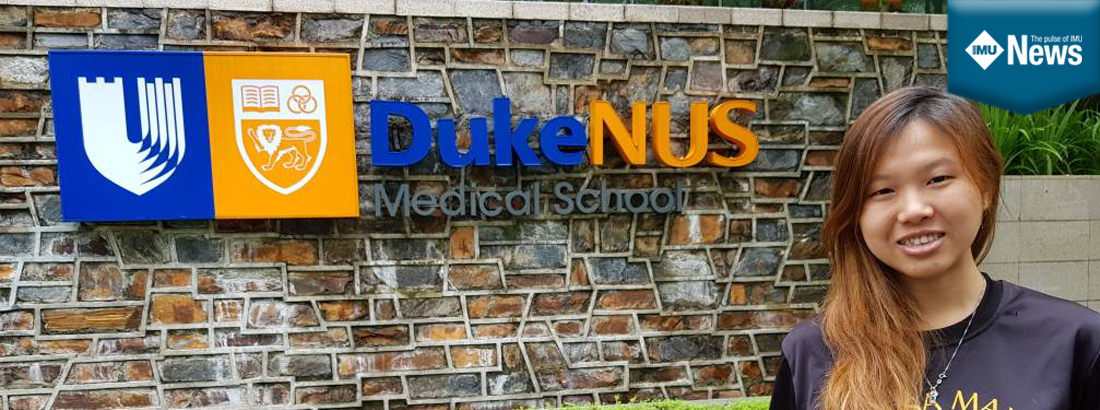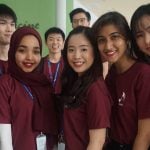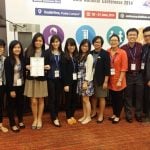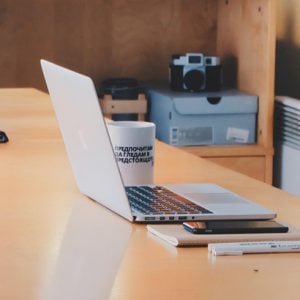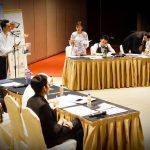10 April – 30 September 2017 – “The Apprentice” is one of the most anticipated modules in the IMU Biomedical Science programme, as Semester 6 students are introduced to practical “hands-on experience” in a biomedical science-based industry for 12 weeks. Students may choose to have their attachments locally or in foreign countries, and even extend their internship. Chong Ho Phin (also known as Stephenie) from the Biomedical Science cohort of BM114, is one of these students who has completed her extended 6-month internship at DUKE-NUS Medical School, Singapore, a collaboration between Duke University, United States and National University of Singapore, Singapore. Ho Phin decided to do her internship at DUKE-NUS as it possesses some of the most sophisticated biomedical research facilities and is known for producing quality projects that are published in well known journals such as Nature Medicine.
Ho Phin was placed under Emerging Infectious Disease Department under the supervision of Assistant Prof Dr Ashley St John and Dr Choi YoungJoo. Assistant Prof Ashley’s lab investigates the role of mass cells, host-pathogen interactions and viral immunology. “My main role is to assist Dr YoungJoo in his project in the determination of the role of NKT cells in Dengue. Apart from this, I was given freedom to assist other postdoctorates, research assistants and Ph.D. students in their projects. My proactiveness has enabled me to learn and perform different experiments.

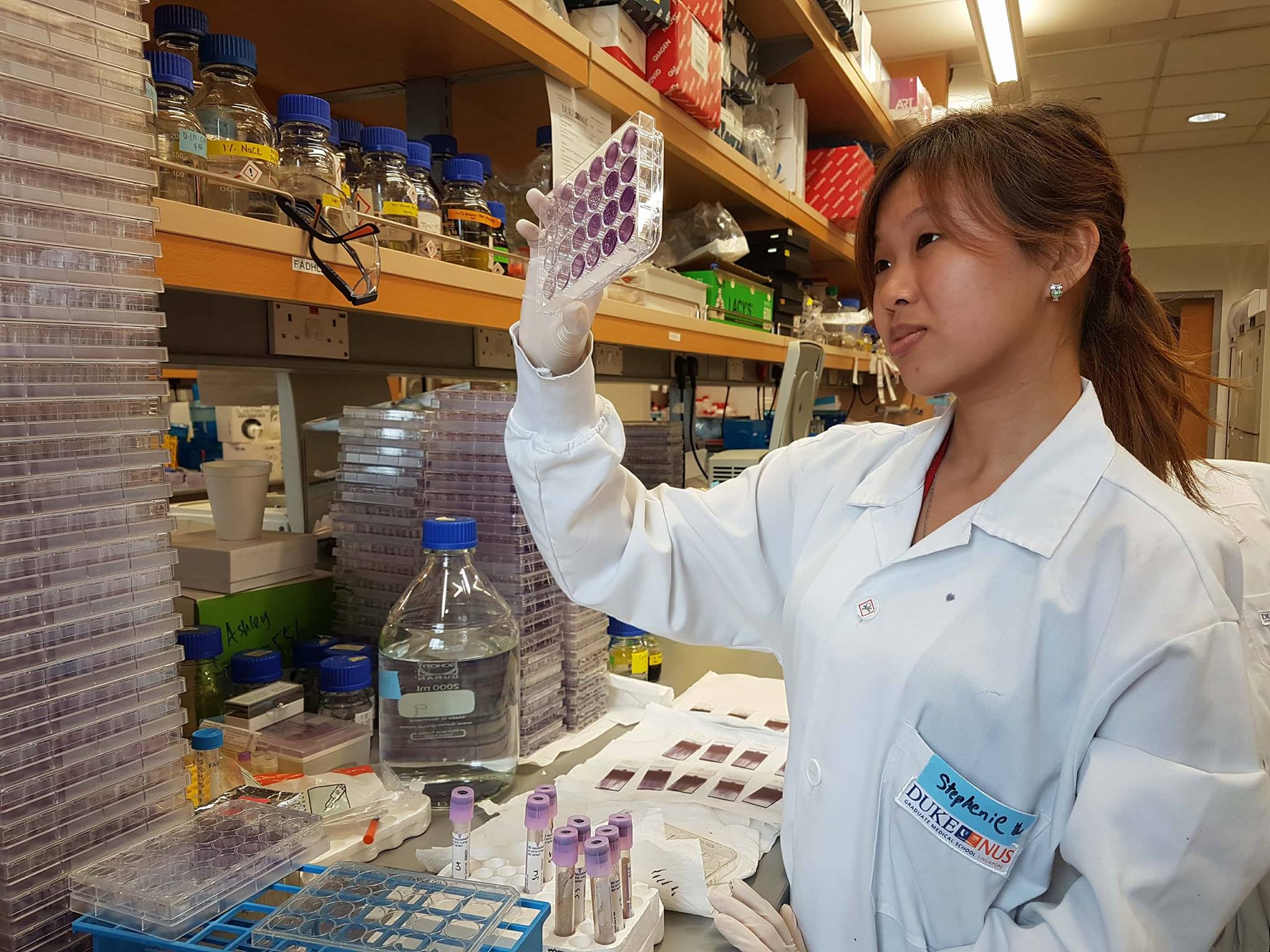 Throughout the 6-month internship, I believed I had successfully polished my lab-based skills. I have performed up to 25 different lab experiments. The activities range from subculture of various cell lines (Vero, BHK 21, C6/36, J7 and Rosa cells), genomics, hematological studies, in vivo experiments (Flexivent, collection of bronchoalveolar lavage and cardiac puncture) and data analysis.
Throughout the 6-month internship, I believed I had successfully polished my lab-based skills. I have performed up to 25 different lab experiments. The activities range from subculture of various cell lines (Vero, BHK 21, C6/36, J7 and Rosa cells), genomics, hematological studies, in vivo experiments (Flexivent, collection of bronchoalveolar lavage and cardiac puncture) and data analysis.
Aside from honing lab techniques, I gained insights and inspirations for my future career in science and evidence-based research. I have attended weekly lab meetings, monthly department floor meetings and student seminars. From these sessions, published papers and projects were discussed. I truly appreciate these sessions as it serves as a platform where we learn from each other and/or together. Another session I particularly enjoyed were the talks given by renowned guest speakers such as Prof Michael S Diamond (Department of Pathology and Immunology, Washington University School of Medicine) and Dr Rino Rappuoli (chief scientist of GSK).
I was warmly welcomed by Prof Ashley and the lab members who are my colleagues, mentors and friends. They guided me in my tasks, ensured that I am aware of my learning outcomes, and comforted me when I was feeling homesick. Furthermore, they gave me constructive feedback on my application to University Malaya and oral presentation on my final year project in the 8th Symposium of Biomedical Science in IIUM, Kuantan in May. Their guidance had greatly contributed to me securing the masters position in UM and winning 1st prize in the symposium. I am truly grateful for their guidance. Taking advantage of my time here in Singapore, I took the liberty of exploring Singapore every Saturday. I visited museums, temples, churches, tourist hotspots, and even watched a musical at the Esplanade. It was intimidating to explore a country alone, but life seems so much more beautiful when you expand your comfort zone. 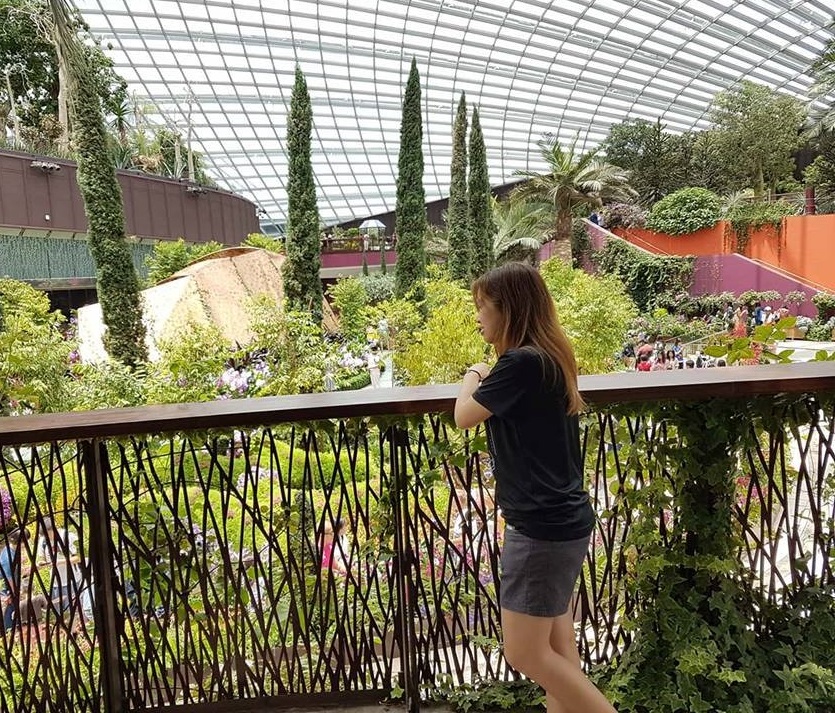 All in all, my experience in Singapore and DUKE-NUS has been wonderful. My time here at DUKE-NUS has enforced the true meaning of IMU’s value, “lifelong learning” in me. The pursuit to produce quality work in evidence-based research is truly inspiring. The experience was a perfect blend of developing professionally as an aspiring biomedical scientist and discovering one’s self through independence and leaving one’s comfort zone.
All in all, my experience in Singapore and DUKE-NUS has been wonderful. My time here at DUKE-NUS has enforced the true meaning of IMU’s value, “lifelong learning” in me. The pursuit to produce quality work in evidence-based research is truly inspiring. The experience was a perfect blend of developing professionally as an aspiring biomedical scientist and discovering one’s self through independence and leaving one’s comfort zone.
As I embark on my journey to my next milestone in University of Malaya for my Masters in Medical Science, I take with me the invaluable lessons that both IMU and DUKE-NUS has aid in my personal and professional development.”




